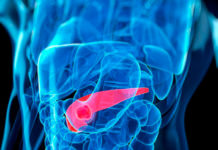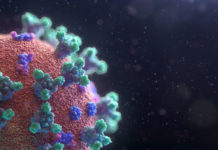 Joy Milne helped scientists create a test that detects Parkinson’s disease before the appearance of its symptoms. Cancer, Alzheimer’s disease, tuberculosis, and other diseases are expected to follow since each of these diseases also has its own smell.
Joy Milne helped scientists create a test that detects Parkinson’s disease before the appearance of its symptoms. Cancer, Alzheimer’s disease, tuberculosis, and other diseases are expected to follow since each of these diseases also has its own smell.
The fact is that former nurse Joy Milne has a very sensitive sense of smell. She can identify the characteristic musky scent associated with the patients suffering from Parkinson’s disease. It started with the fact that she had noticed a change in her husband’s smell 12 years before he was diagnosed by doctors. Later, visiting the support group for patients with this disease and their relatives, she noted that all patients smell the same. This is what Tilo Kunaht, a neurobiologist at the University of Edinburgh, told us about.
The scientist tested Joy Milne’s abilities, giving her several T-shirts, some of which belonged to people with Parkinson’s disease. Milne was not mistaken in any of them. She even pointed out another person who was considered healthy. That lady was diagnosed 8 months later. After a successful test, the woman joined the study. The specialists sought to identify the molecules responsible for the specific smell.
According to Milne, the smell was the strongest on top of the back, where sebum is secreted very intensely. From the samples of this skin fat, 4 basic volatile compounds were isolated. Milne confirmed the consistency of the mixture of their smells and the smell of Parkinson’s disease. A non-invasive test will be based on these compounds, allowing you to make a diagnosis long before the onset of symptoms. The accuracy of the test will be checked on 1000 patients and 100 healthy people. Scientists are interested to establish whether it is possible to determine the rate of development of Parkinson’s disease and its various forms by changing the smell. But most of all they are interested in whether it will be possible later on to reveal by smell how effective the chosen therapy with certain medications is.
The next stage of work for scientists is the creation of similar tests to identify other diseases. Joy Milne is already preparing to study chemicals that cause the characteristic smell of tuberculosis. Next, cancer will be studied, which, according to Joy, has an earthy odor, and Alzheimer’s disease, reminiscent of vanilla.






